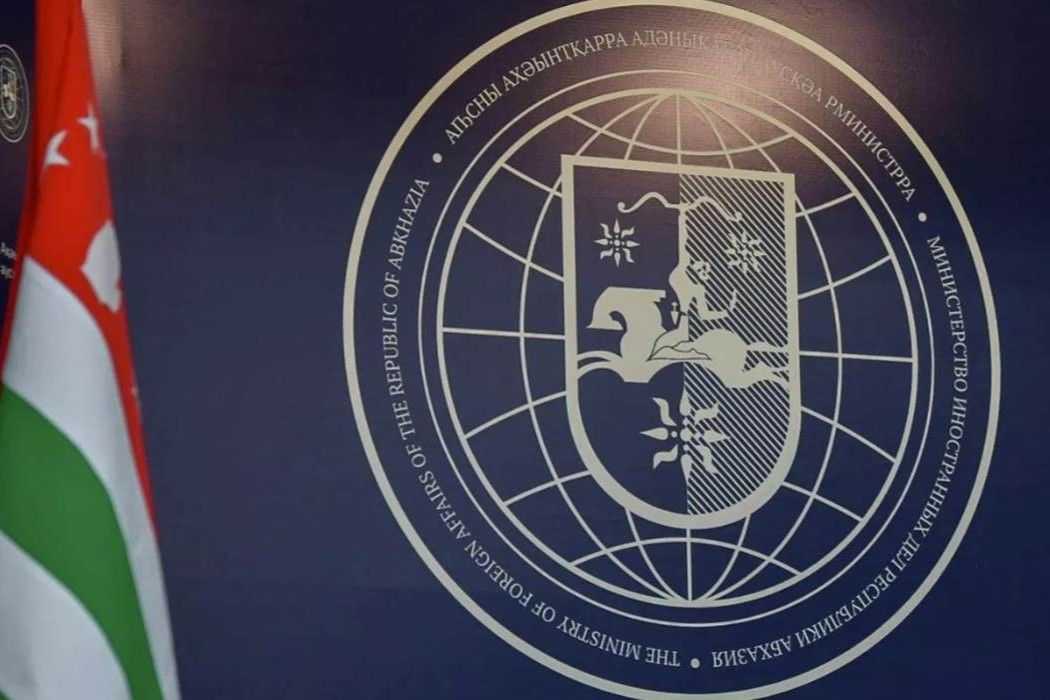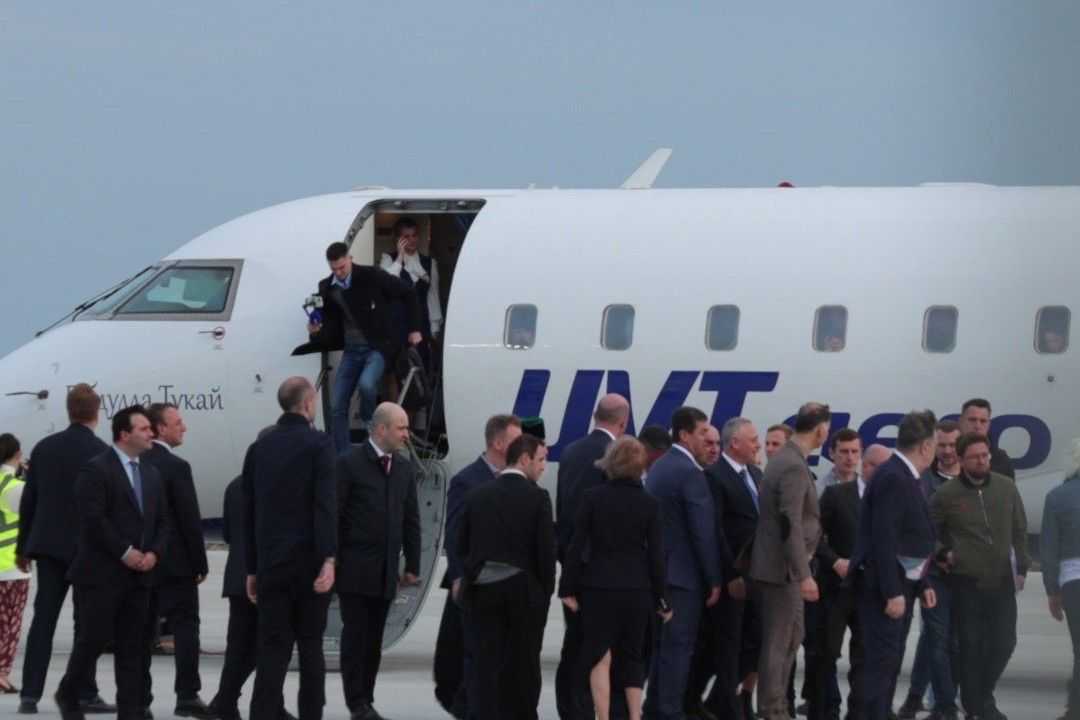
Comments by former Russian President Dmitry Medvedev suggesting that Russia could annex Abkhazia and South Ossetia ‘if there are good reasons’ have been met with anger in Abkhazia.
Medvedev, who serves as Deputy Chair of the Russian Security Council, made the comments in an op-ed in the state-owned newspaper Argumenty I Fakty on Wednesday.
‘In Abkhazia and South Ossetia, the idea of joining Russia is still popular’, he wrote. ‘And it may well be implemented if there are good reasons for that.’
Medvedev was writing three days before the 15th anniversary of Russia’s recognition of Abkhazia as an independent state, following the 2008 August War. Medvedev was president at the time of the war.
Despite anger online and among public figures in Abkhazia, the authorities have remained silent on Medvedev’s suggestion, with the exception of the Secretary of the Abkhazian Security Council, Sergey Shamba.
‘Abkhazia is in favour of close and allied relations with Russia’, Shamba told Russian state news agency TASS. ‘But at the same time there are no political forces in the republic that would declare their desire to join the Russian Federation.’
Medvedev’s words appeared to be an implicit threat towards the West. Since the Russian invasion of Ukraine, he has positioned himself among the country’s most hawkish voices, regularly threatening nuclear war against NATO.
‘We do not need a repetition of 2008’s history. We are still ready to solve problems at the negotiating table in the spirit of the UN Charter’, Medvedev wrote. ‘But if our concerns solidify, we will not hesitate.’
Those to speak out against the former Russian president in Abkhazia included Aslan Kobakhia, a veteran and former official, who was quick to react on Facebook.
‘It is very unpleasant on the eve of the day of international recognition of Abkhazia to hear about a possible change in the country’s status from the person who signed the decree recognising our independence’, Kobakhia wrote.
Farid Kobakhia, a prominent Abkhazian historian, said people should have no illusions about Russia.
‘Once again I am convinced that we have no friends; we are alone in this complex world. Let’s move away from illusions, the whole question is geopolitics’, he wrote in a comment on Facebook.
Irakli Bzhinava, an associate professor of law, reacted even more sharply.
Quoting Medvedev’s words, he wrote that ‘in the event of a “good reason”, we will fight for our freedom’.
He went on to slam the Abkhazian authorities for failing to respond.
‘I do not presume to judge whether Dmitry Medvedev is an alcoholic or not. Personally, I don’t believe so’, he said, a reference to frequent speculation that Medvedev’s most incendiary remarks are made while drunk.
‘But for me, he is the current Deputy Head of the Security Council of the Russian Federation, that is, Vladimir Putin’s deputy’, he continued. ‘Therefore, the Ministry of Foreign Affairs of the Republic of Abkhazia should immediately respond to his words about the possible accession of Abkhazia to Russia’.
On Thursday, the Foreign Ministry released a brief statement which, while not directly referencing Medvedev’s op-ed, did assert that ‘the thousand-year statehood of Abkhazia is not a subject for discussion.’
‘The Republic of Abkhazia appreciates the repeated statements by top Russian officials regarding the impossibility of revising the fundamental foundations of bilateral relations’, it said.
Foreign Minister Inal Ardzinba is currently holding meetings in the regions of Abkhazia in which the main topic is support for Russia’s invasion of Ukraine.
Others have linked such statements to the Abkhazian government making concessions to Russia, including the controversial handing over of the Pitsunda Dacha to Russia.
‘The person didn’t say anything that we didn’t deserve, didn’t provoke and didn’t beg for’, journalist Eleonora Giloyan wrote on Telegram.
‘Moreover, I think this meets those requests […] very well. In short, leave this man [Medvedev] alone. They got the wrong guy.’
On Friday, the President of Abkhazia, Aslan Bzhaniya, met with Medvedev in Moscow. Medvedev congratulated Bzhaniya on the 15th anniversary of Russia’s recognition of Abkhazia.
‘Our relations have been developing successfully, we have allied, very good relations, and this development will certainly continue’, he said.
Bzhania expressed gratitude to Russia and to Medvedev personally.
‘You have made a huge contribution to the development of Abkhazian statehood by recognising the independence of our republic. In this way, lasting peace was secured for Abkhazia’, he said.
‘We have been moving towards independence, towards freedom for many decades. Our path was stained with blood and sweat. And in the end, thanks to the Russian Federation, justice prevailed.’
Bzhaniya also expressed hope that issues with the Russian government would be resolved quickly, and that Abkhazia’s friendship with Russia would become even stronger.
Silence in South Ossetia and criticism from Georgia
The authorities in South Ossetia also remained tight-lipped following the publication of Medvedev’s article.
However, David Sanakoyev, a former foreign minister and MP from President Alan Gagloyev’s Nykhas party, said there was no consensus on the issue in South Ossetia, and that it should be ‘up to the people of South Ossetia to decide’.
Sanakoyev also complained that the issue was frequently politicised.
During the 2022 presidential election in South Ossetia, incumbent president Anatoly Bibilov vowed to hold a referendum on joining Russia. The initiative was scrapped by Gagloyev after he triumphed in the election and following a cold reception from Russian officials.
Hours before the op-ed by Medvedev was published, Russian state-run news agency Ria cited Vyacheslav Gobozov, councillor to South Ossetian President Alan Gagloyev, as advocating for South Ossetia becoming a member of the Union State with Russia and Belarus.
Georgian officials condemned Medvedev’s statement. In a statement given to the media on 24 August, the foreign ministry called it a ‘continuation of the Russian Federation’s policy of occupation of Georgian territories and another attempt to violate [Georgia’s] sovereignty and territorial integrity’.
The statement was not published on the ministry’s website or social media channels.
Georgian opposition MPs from the parliamentary groups the United National Movement, Lelo, and Strategy Aghmashenebeli decried Medvedev’s statement, which they described as a result of Georgia’s soft stance on Russia.
Strategy Aghmashenebeli’s MP Paata Manjgaladze went as far as claiming that Sergey Shamba and Russian MP Konstantin Zatulin turned out to be more critical of Medvedev than the ruling Georgian Dream party.
Zatulin, the deputy chair of the Duma’s Committee on CIS Affairs, criticised Medvedev’s statement as ill-timed and stating that it could complicate relations with the Abkhazian and Georgian governments.
‘This would cause a split in Abkhazian society, and external forces would take advantage of this split’, Zatulin warned, adding that integrating those regions into Russia would also convince ‘radicals’ in Georgia that ‘Russia is an “aggressor” ’.
For ease of reading, we choose not to use qualifiers such as ‘de facto’, ‘unrecognised’, or ‘partially recognised’ when discussing institutions or political positions within Abkhazia, Nagorno-Karabakh, and South Ossetia. This does not imply a position on their status.







